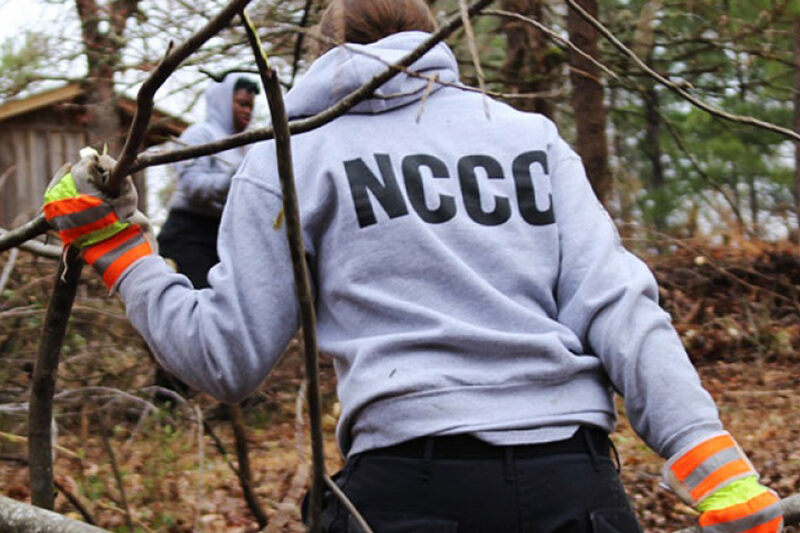Federal Court Grants Preliminary Injunction Blocking N.H. State Law Attacking Diversity, Equity, and Inclusion
CONCORD, N.H. — The federal court in New Hampshire today issued a preliminary injunction blocking, for almost all public school districts, a law banning diversity, equity, and inclusion programs pertaining to race, gender, sexual orientation, gender identity, and disability in New Hampshire K-12 public schools and public and private universities. The court held that the plaintiffs are likely to succeed on their claims that the law violates due process and is contradicted by federal disability civil rights laws.
The court explained: “The breadth of the anti-DEI laws’ prohibition is startling. The definition of ‘DEI’ contained therein is so far-reaching that it prohibits long-accepted—even legally required—teaching and administrative practices. It is hard to imagine how schools could continue to operate at even a basic level if the laws’ prohibitions were enforced to their full extent.”
The anti-equity, anti-inclusion, and anti-diversity law in New Hampshire became effective on July 1, 2025 after being signed into law by Gov. Ayotte in late June. The groups who filed suit argue it radically contradicts federal civil rights laws that protect the rights of students with disabilities, violates the First Amendment rights of educators, and is unlawfully vague and ambiguous under the United States and New Hampshire Constitutions.
The court recognized that it is impossible for schools to comply with both federal disability laws and the anti-DEI law, and that the state law is therefore unconstitutional. The court also observed that the Individuals with Disabilities Education Act (IDEA) “requires conduct that the anti-DEI laws forbid: classifying students based on disability in order to improve outcomes for students with disabilities.”
The law is already being enforced arbitrarily, as the court explained: “The incongruity in enforcing the anti-DEI laws against private colleges and universities supported by state-funded scholarships, but not private K-12 schools supported by EFAs, demonstrates that the laws permit or encourage arbitrary enforcement based on an enforcement authority’s subjective preferences.”
Devon Chaffee, executive director of the ACLU of New Hampshire, said: “This court victory could not come at a more critical time. Students across New Hampshire have the right to an inclusive education and educators in our state should not be threatened with vague laws that restrict their ability to meet the needs of their students. By continuing to block this unconstitutional law, the court has made clear that all students in the Granite State deserve equitable pathways to learn and thrive.”
The legal challenge was brought by the state’s largest educator union, National Education Association – New Hampshire (NEA-NH), four school districts (Oyster River Cooperative School District, the Dover School District, the Somersworth School District, and the Grantham School District), trainer and consultant for diversity, equity, and inclusion James M. McKim, Jr., diversity, equity, and inclusion administrator and psychology professor Dottie Morris, and New Hampshire Outright, a nonprofit that provides training in public schools and entities on creating environments of inclusion and belonging for LGBTQ+ students. Mr. McKim and Dr. Morris bring this case in their individual capacities.
They are represented by lawyers from a broad coalition of organizations and law firms, including the ACLU of New Hampshire, the national American Civil Liberties Union’s Disability Rights Program and Racial Justice Program, National Education Association-New Hampshire (NEA-NH), GLBTQ Legal Advocates & Defenders (GLAD Law), and Drummond Woodsum & MacMahon.
Megan Tuttle, president of NEA-New Hampshire, stated: “This ruling affirms what we’ve always known: every student in New Hampshire deserves access to a high-quality public education in a safe, inclusive, and supportive environment. The anti-DEI language in HB 2 threatened that promise. Programs and instruction that reflect the values of diversity, equity, and inclusion are not just educationally sound, in many cases, they are legally required. Yet the vague and confusing language buried in the state budget sought to censor educators and restrict our ability to meet the needs of all students, including those who rely on special education services. New Hampshire’s educators will continue to stand firmly against unconstitutional political interference in our classrooms because we are committed to ensuring every child receives an appropriate education based on their individual needs and feels safe, valued, and fully prepared for the bright future they deserve. That’s the New Hampshire way.”
Heidi Carrington Heath, executive director of New Hampshire Outright, a plaintiff in the case, said: “The court’s decision to continue blocking this unjust law ensures that LGBTQ+ youth and their families can continue accessing safe school and community environments, fostered by well-respected, evidence-based training programs that many schools and public entities across the Granite State benefit from. Creating healthier and stronger environments for LGBTQ+ youth does so for everyone.”
James T. McKim, Jr., a plaintiff in the case and who works regularly with state and local government bodies to improve operations, including through diversity, equity, and inclusion practices, said: “The continued block on this harmful law means that organizations (including educational institutions) can continue improving their performance by exploring how to obtain the proven benefits of equitably including diverse people and perspectives - and that helps every Granite Stater."
“I thank the court for continuing to block this law so that educators may adequately serve every single one of their students and create school environments that support learners from diverse lived experiences,” said Dottie Morris, a college administrator focusing on belonging and psychology professor, who is a plaintiff in this case. She is bringing suit only in her individual capacity.
Zoe Brennan-Krohn, director of the ACLU Disability Rights Program, said: “The court saw this law for what it is: an expansive and illegal attack on the rights of students. This decision affirms that all New Hampshire students have an equal right to education, and that the state cannot undermine federal protections for disabled students.”
Hannah Hussey, staff attorney at GLAD Law, said,:“Today the Court recognized that HB 2 unlawfully prevents initiatives that ensure equal educational access for all New Hampshire students. It protects the ability of New Hampshire educators and educational institutions to effectively prepare our students to live, work, and contribute to our communities. This includes providing trusted educational programs to help students learn to navigate differences respectfully—a practical skill in our diverse world. HB 2’s vague bans on programs related to race, gender, sexual orientation, gender identity, and disability wrongfully prohibit efforts to provide equal educational opportunity for female students, LGBTQ students, students of color, and students with disabilities. It disadvantages all students and undermines our values of freedom and opportunity for all.”
Dr. Christine Boston, superintendent of Dover Public Schools, said: “The Dover School District is committed to providing individualized, inclusive, and equitable education, as mandated by local and state policies. However, HB2’s vague restrictions on diversity, equity, and inclusion (DEI) efforts—especially those that involve recognizing student demographics—raise concerns that the District’s practices could be misinterpreted as violations, potentially risking vital state and federal funding.”
Dr. Robert Shaps, the superintendent of the Oyster River Cooperative School District (ORCSD), said: “We are grateful and relieved that Chief Judge Landya B. McCafferty issued an injunction blocking this law as the case proceeds through the judicial system. This decision represents an important victory for New Hampshire students and their families. Judge McCafferty’s ruling reaffirms the state’s constitutional responsibility to provide adequate school funding without conditions. Schools should be a place where educators and students can exchange ideas and share different viewpoints as part of the learning experience.”
Christine Downing, the superintendent of the Grantham School District, said: “The Grantham School District appreciates the Court's decision to grant a preliminary injunction against the DEI prohibitions found in HB2. This decision recognizes the concerns regarding the law's vague language and its potential chilling effect on our educational programming, as well as concerns regarding the law’s proposed unilateral and arbitrary loss of funding without providing a full understanding of what constitutes a violation. As a district, we remain committed to our mission to prepare students to thrive in a diverse, global world by honoring each other, valuing uniqueness, encouraging empathy, and fostering an inclusive environment where all our students – including those with disabilities and from diverse backgrounds – receive the support and education they are guaranteed under federal and state law. We will continue to monitor the ongoing litigation and look forward to further clarity as this critical case progresses.”
John Shea, the superintendent of the Somersworth School District, said: “At a time when the rule of law is being trampled, by our very own government, it is heartening to receive this decision. The Somersworth School District is proud to stand up, with all of the other plaintiffs and our legal team, for the American values that are simply fundamental to universal public education. Moving forward, I’m desperately hopeful that this sort of distractive and destructive legislative gamesmanship will stop. We must find a way to come together – around some basic common ground – and move past all the divisive rhetoric and wasted time. Let’s get on with the important work of the noble American experiment. And let's take good care of our kids – all of them.”
The court’s order is available here: https://www.aclu.org/cases/national-education-association-new-hampshire-v-formella?document=Order-Granting-Preliminary-Injunction
Court Case: National Education Association - New Hampshire v. Formella
Affiliate: New Hampshire



